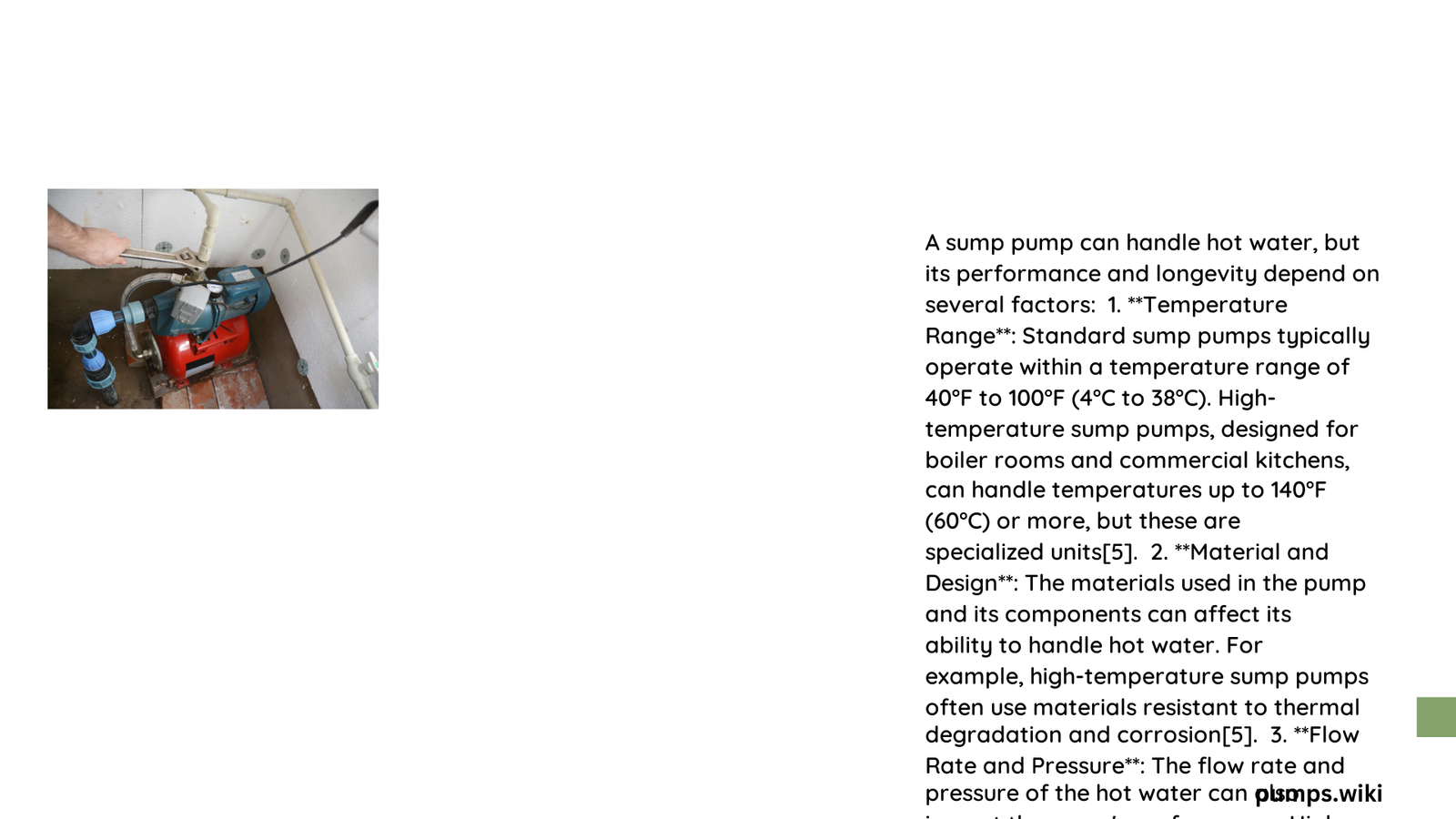Sump pumps encounter significant challenges when exposed to high-temperature water, with most standard models limited to temperatures around 130°F. Understanding the intricate technical specifications, material tolerances, and design constraints is crucial for determining whether a specific sump pump can safely and effectively manage hot water without compromising its operational integrity and long-term performance.
What Temperature Limits Define Sump Pump Hot Water Capabilities?
Sump pumps have distinct temperature thresholds that dramatically impact their functionality and durability. The maximum temperature tolerance varies significantly based on pump design, materials, and intended application.
Standard Electric Sump Pump Temperature Constraints
| Pump Type | Maximum Temperature | Performance Impact |
|---|---|---|
| Standard Centrifugal Pumps | 130°F (54°C) | Motor overheating risk |
| High-Temperature Specialized Pumps | Up to 250°F (121°C) | Enhanced thermal resistance |
What Materials Determine Hot Water Resistance?
Different pump component materials provide varying levels of heat resistance:
- Viton Seals: Withstand temperatures up to 250°F (121°C)
- Ethylene Propylene: Tolerates temperatures around 280°F (138°C)
- Aflas Compounds: Capable of handling up to 350°F (177°C)
How Do Hot Temperatures Affect Sump Pump Performance?

Hot water introduces multiple technical challenges for sump pumps:
- Motor Thermal Stress
- Increased risk of thermal protection activation
- Potential premature motor failure
-
Reduced operational efficiency
-
Mechanical Seal Degradation
- Reduced fluid viscosity
- Increased friction between seal faces
-
Accelerated wear and potential leakage
-
Material Expansion and Structural Integrity
- Rapid material degradation
- Potential gasket and seal failure
- Compromised pump structural stability
What Specialized Pumps Handle Hot Water Effectively?
Recommended High-Temperature Pump Solutions
- Air-Operated Pumps
- No motor overheating concerns
- Reduced mechanical seal complications
-
Suitable for extreme temperature environments
-
Zoeller CI Pumps
- Rated for temperatures up to 130°F
- Designed for boiler room applications
- Enhanced thermal management features
What Precautions Protect Sump Pumps from Hot Water Damage?
Critical preventive measures include:
- Regular temperature monitoring
- Using high-temperature rated components
- Implementing cooling mechanisms
- Selecting pumps with appropriate thermal specifications
Can Homeowners Use Standard Sump Pumps with Hot Water?
Recommendation: Avoid using standard sump pumps for hot water applications. Consult specialized industrial pump manufacturers for tailored solutions matching specific temperature requirements.
Professional Consultation Checklist
- Verify exact water temperature
- Assess pump material compatibility
- Evaluate continuous vs. intermittent exposure
- Consider specialized high-temperature pump models
Technical Recommendations for Hot Water Pumping
- Always prioritize pump manufacturer specifications
- Use thermal monitoring systems
- Select pumps with robust thermal protection
- Consider alternative pump technologies for extreme temperatures
Conclusion
Understanding the intricate relationship between sump pumps and hot water requires comprehensive technical knowledge. While standard pumps have significant limitations, specialized solutions exist for managing high-temperature water effectively.
